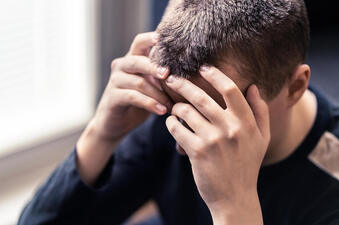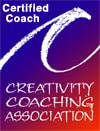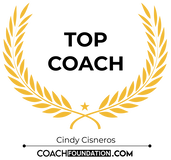|
A regularly featured session topic amongst the Creative People I serve in therapy and coaching is abandonment and isolation. This generally falls into two categories: within families and socially. While anecdotally, knowing what I know of Creative People and their personalities, this makes sense to me, I decided to see if there is any research available on the topic. Individuality and Authenticity Creative Personality TraitsGrounding this search for understanding is our knowledge of the Creative Personality, and its hallmark feature of need for authenticity and individuality. While seeking individuality is a common human personality trait, Creative People are further driven by a pursuit of living authentically. Beyond standing out in a crowd, Creative People experience a profound need to live their lives in a way that is consistent with their innermost beliefs and desires. This is a powerful guiding force to important choices made in their lives. When we remember that Creative Personalities are neurodiverse and in the minority of the general population, we can understand the that pursuit of authenticity also puts Creative People in positions where they oppose norms, stand out, and make themselves otherwise vulnerable to criticism and rejection. Rejection and Tension With Families of Origin There is a known and accepted correlation in psychology between personality and stages of growth and development. In fact, many psychological theories have.connected family of origin to behavioral and experiential traits in our personalities, and view psychology specifically through this lens. Regardless of how impactful one sees their childhood development upon their experiences, the experience of family acceptance or rejection is important. A noticeable correlation amongst Creative People and families of origin stories, is rejection, and/or tension in families of origin. Freedom, Independence, Authenticity, and Rejection...Recipe for Creativity? In a study by Jiajun Guo, Jing Zhang, Weiguo Pang (2021), they find that both “parental warmth and parental rejection were positively associated with creativity.” The study goes on to find specific mediating variables in each family type, impacting creativity in children. According to the study: “While autonomy-supportive family theories generally reflect the positive side of family influences, a bulk of evidence has pointed to another possibility— the absence of harmony or presence of conflicts in families is also related to later life creative achievements. For example, children with creative giftedness or artistic interests were often found to come from families replete with tensions, parental conflicts, and stress (Brooks, 1973; Koestner et al., 1999).” The study also explores independence and authenticity as “freedom” experienced as “rejection” in these families, which, “initially serve the purpose of a defense mechanism but later enable them to break away from convention and finally lead to creative achievements.” This study, and others agree, that the direction of causation can be unclear, in other words, that household influences precipitate creativity, or creative individual precipitate household difficulties, or both. However, the majority of studies exploring this relationship establish a link, and interviews with my own clients substantiate this. Creative People and their FriendsCreative People regularly experience smaller groups of closer friendships, often from a variety of other groups and backgrounds. They regularly lament during session that they don’t have “many friends,” or that they feel “abnormal” in this way. However, from my position, hearing consistent information from many Creative People, it seems very normative. It also makes sense with what we know of Creative People seeking authentic and deep connections. Scott Barry Kaufman, a Social Psychologist, further comments on the social engagement of creative people: “By definition, creative solutions are unusual, involving the recombination of ideas. Unusual, divergent ideas and access to distant, remote associations are hallmarks of creative thinking. Perhaps those who like to distance themselves from others are more likely to also recruit associations from unusual places and think beyond conventional ideas.” (Barry Kaufman, 2012) Authenticity as a Creative PersonKaufman believes that nonconformity, as a feature of creative authenticity, is important when separating social groups and friendships. In other words, it is more important for Creative People to be authentic, and associate with others that are like-minded, than to achieve other social goals. Reclaiming Your Strength as a Creative PersonalityWhat is important in both family and social associations for Creative People, is understanding your Creative Personality, so as to reclaim your strengths from stigma. While many Creative People see themselves as “odd” or “abandoned” or “unworthy,” research, experience, and expertise show us it is in fact, dedication to Creative authenticity, and meaningfulness, that sets you apart in your individuality. These are features to be celebrated and supported! They are necessary for you to live well, they are important for your relationships, and they are vital to society, at large. Would you like to learn more about your Creative Personality?1) Book a Free Consultation. All new clients to Creatively, LLC are entitled to a 15 min, free consultation to sit with me and discuss your needs, services available, and we can problem solve and hand-pick the best next steps to help you succeed. 2) Begin Counseling for the Modern Day Creative Person. Are you a working Creative in need of specific support? I offer a range of Counseling Services so you can select exactly what you need, and nothing that you don't. Creativity Counseling offers 30 min sessions to 60-minute sessions, as well as asynchronous support. 3) Book a Coaching Package. Are you a working Creative in need of specific support? I offer a range of Coaching Packages from 150$. Let's get started with one that is right for you. More Articles Like Creative People and AbandonmentIntense Pressure for Creative People, Creative People and the Urge to Shop, Creative People Who Don't Know Who They Are, Concierge Counseling for Creative People, Creative People with Headaches and Stomach Aches, Creation Translation, Crisis of Meaning: Creative People Lost, Coaching Creative People, A Creative Personality Snapshot References: Jiajun Guo, Jing Zhang, Weiguo Pang. Parental warmth, rejection, and creativity: The mediating roles of openness and dark personality traits. Personality and Individual Differences, Volume 168, 2021.https://doi.org/10.1016/j.paid.2020.110369 (https://www.sciencedirect.com/science/article/pii/S0191886920305602)
Barry Kaufman, Scott. Social Rejection Can Fuel Creativity. Social rejection fuels creativity for people with an independent mindset. Posted August 24, 2012 There are traditional models and modes of understanding established through research about creativity and stress. The difficulty is, over time, these models have begun to contradict each other. What is True About Stress and Creativity?You may have heard the one theory, that, stress is the enemy of creativity. Conversely, it has been said that creative ideas are born and evolve under pressure. Which of these is true? They both seem logical. That is because- they both, in fact, are true at different times for different people. How Does Stress Impact the Creative Process?I recently stumbled upon a wonderful article by Daniel Kuntz1 in which he succinctly summarizes some of this research, and a more moderate conclusion in Creativity Research: “The trick, then, is knowing your stressors—though it is also a matter of knowing how much you can take" (M. Runco, University of Georgia, by D Kuntz). In other words, what Kuntz describes that Runco found, is that knowing your optimal stress level, as well as what your stressors are, are the most important features in knowing how pressure and stress impacts your creative process. Thriving in High-Pressure or Low-Pressure Spaces Human Sciences have increasingly moved towards behaviors, emotions, experiences and more as existing on a spectrum, more than previously-used stand-alone diagnoses, terms, etc. This has also been an increasingly accepted definition for stress. It makes sense that not the same amount of stress or pressure would affect a Creative Person in the same way. Some Creative People thrive with deadlines, in competitions, and with high levels of pressure (like our earlier example of research: necessity as the birth of creativity). Other Creative People thrive with low to no stress or pressure in order to generate new ideas (like the models stating stress is the enemy to creativity). And- of course- examples abound in between these two points. Different Strokes for Different FolxA second important factor noted in Creativity Research is that what is considered stressful is not the same for everyone. Events, for example, generally labeled “good” by society, science, etc, may be experienced as stressful by some, and non-stressful by others, and vice-versa. Similarly, adopting a spectrum approach to how stressful events and conditions are to you, and getting to know yourself well as an individual is imperative. There are vast differences between levels of stress, for example, between living environment conditions, social conditions, noise levels, social events, life events and many, many more. Drop the Labels As you develop clarity about your optimal level of pressure, and what conditions create this pressure and stress for you (and a separate debate could be had to emphasize the importance of shedding the label of “good” or “bad” for the terms “stress” and “pressure,” for, in these equations they are merely formulaic and descriptive), your next task is understanding how to mitigate your levels of stress. Have you evaluated generally what levels of stress and pressure exist in your life? How does that compare to what you find optimal for your creativity? Now, as creative people, we as ourselves, what factors help us change that level of stress and pressure more towards what we find is optimum? Optimal Creative Conditions: Stress and Pressure IncludedUnderstanding how to mitigate your stress and pressure in order to be optimally creative is hard work. Implementing is even more difficult. It demands that you reflect and know yourself as a Creative Person, including the strengths and weaknesses of your Creative Personality, and well as knowing yourself and your intentions as an artist including your creative process, and what is beneficial or disruptive to that. Consider Coaching or Counseling for Creative PeopleConsidering stress and pressure as factors you can understand and manipulate in order to benefit yourself and your creativity is a new way of looking at your Creative Self. If you are interested in empowering yourself in this way, I would love to talk to you. Here are some steps you can take right now, to start your journey as a healthy and successful Creative Person:
Other Articles Like Intense Pressure for Creative PeopleCreative People and the Urge to Shop, Creative People Who Don't Know Who They Are, Concierge Counseling for Creative People, Creative People with Headaches and Stomach Aches, Creation Translation, Crisis of Meaning: Creative People Lost, Coaching Creative People, A Creative Personality Snapshot, © 2022 Creatively, LLC
www.creativelyllc.com |
get more from The Creativity CoursesLiking educational topics and knowing what's hot in creativity? Creatively has online courses, with an interactive creative community, coaching sessions and more in the Creativity Courses. Want these blogposts in a newsletter? Subscribe here, and get a free gift. Cindy Cisnerosis a Creativity Coach, Creative Therapist and Professional Artist in Sykesville, Maryland. She is an expert straddling the realms of arts, creativity research, psychology, therapy, and coaching. She provides Online Creativity Counseling in Maryland and Virginia, and Online Creativity Coaching throughout the USA, Canada and the UK tailored for the discerning, imaginative, artistic, and neurodiverse. The information provided in this blog is from my own clinical experiences and training. It is intended to supplement your clinical care. Never make major life changes before consulting with your treatment team. If you are unsure of your safety or wellbeing, do not hesitate to get help immediately.
Archives
July 2024
|
|
Concierge Therapy for Creatives in Maryland
Creativity Coaching Worldwide including the USA, UK and Canada |
Telephone |
|



 RSS Feed
RSS Feed

